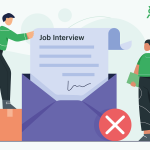11 Tips On How To Answer Interview Questions Confidently
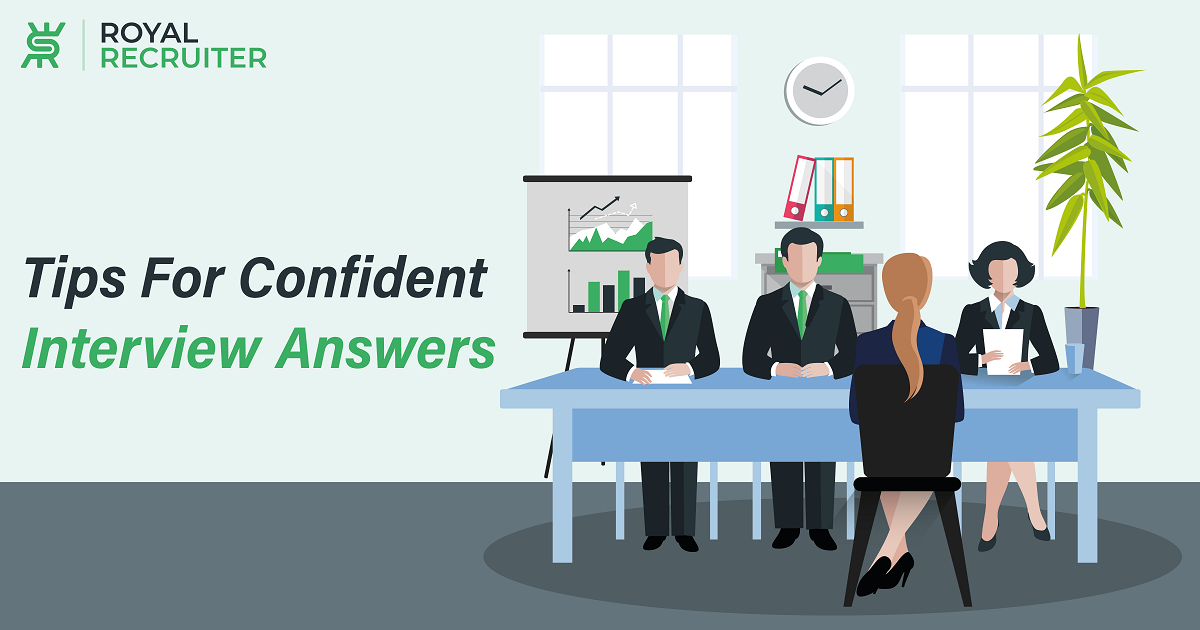
Make a great impression at your next interview with these 11 tips on how to answer interview questions confidently.
Whether you’re a fresher or an experienced professional, everyone knows that interviews can be nerve-wracking experiences because you’ll be sitting in front of a panel of strangers and trying your best to convince them that you’re the best candidate for the position you’ve applied for.
It is totally normal to feel scared and hesitant before an interview. But if you have the proper preparation and mindset, you can confidently answer any questions that the interviewers might ask, and you can create a good impression on your interviewer.
However, cracking an interview isn’t an easy task; you must be well-equipped to impress your interviewers and enhance your chance of securing a position. In this blog post, we’re going to discover some best tips to answer interview questions confidently and some of the most common interview questions!
Let’s get started!
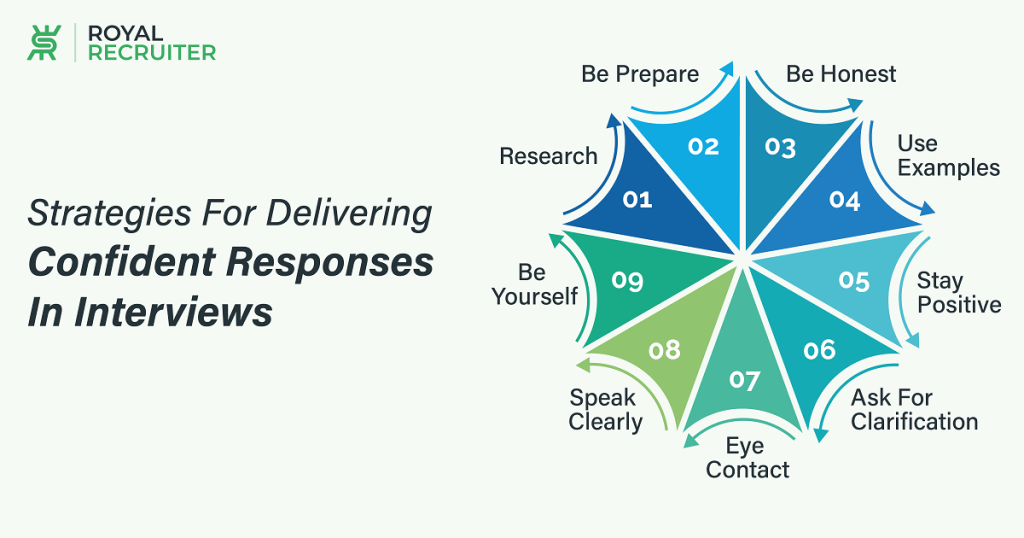
11 Tips For How To Answer Interview Questions Confidently
In this section, we’re going to explore some of the best tips that will help you answer any interview questions confidently, regardless of industry and job position.
Research the company and position
Before the interview and anything else, first, research the company and the position you’re applying for thoroughly. This will help you tailor your answers to the specific job and company.
How do you research and company position? Look up the company’s mission statement, values, and recent news from its website or LinkedIn profile.
Also, review the job description and requirements to understand what the employer seeks.
Prepare for common questions
No matter which industry or job position you’ve applied for, there are some common interview questions that you can prepare for in advance. Some of the most common interview questions include questions about your strengths and weaknesses, your experience, your skills, and why you want to work for the company. Prepare yourself on how you’ll answer the common questions which could impress the interviewers.
While preparing for common questions is important, it’s also crucial to be ready for any unexpected or uncommon inquiries. Interviewers may ask a wide range of questions, so it’s best to be prepared for anything
We’ll talk about the most common interview questions in the upcoming sections.
Practice how you’d respond to interview questions
Now comes the most challenging part, practice how you would answer the potential questions that interviewers would ask. You can practice the common questions in front of a mirror or with friends; this will help you get confident and see what approach sounds better.
Some other tips you can follow when answering interview questions are to listen carefully to the interviewer’s questions and take a moment to gather your thoughts before responding.
Don’t rush to answer a question without fully understanding it, as this may lead to a poorly structured or irrelevant response.
Answer the question directly and provide examples to support your response. Use specific and relevant examples that depict your skills and experience in a positive light. Avoid giving fake or vague answers that don’t provide sufficient detail.
Be honest while responding to questions
Always be honest while answering the questions that are being asked. If you don’t know the answer to a question, it’s better to admit it than to try to make something up. Employers value honesty and integrity, so it’s important to be truthful in your responses.
Because if you get caught lying, the outcome could be bad even if you’re a worthy candidate.
Keep your answers concise and to the point
Keep your answers concise and to the point. Don’t go off-topic or talk too much about things that aren’t related to the question. Stick to the main points and give enough details to support your answer without giving too much information or talking too much. This will help you share your thoughts, experience and ideas clearly and organizationally.
Use examples to support your experience
Use specific examples from your past experience to illustrate your points. This will help the interviewer see how your skills and experience are relevant to the position. For example, if you’re asked about a time when you solved a difficult problem, provide a specific example of a situation where you did this.
Learn The Best Practices On How To Respond To An Interview Email And Make A Great First Impression!
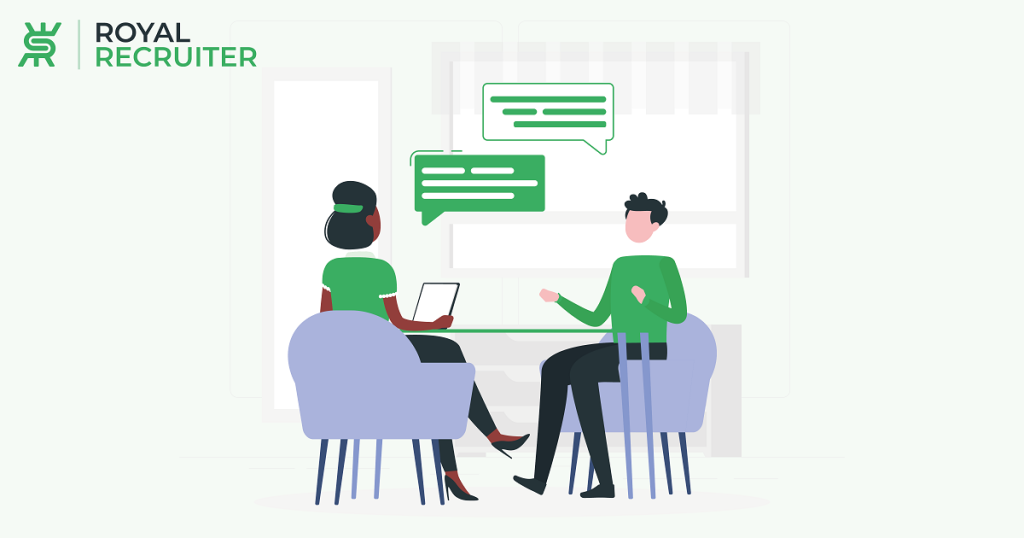
Stay positive
No matter what happens during the interview, keep a positive attitude throughout the interview. Avoid speaking negatively about past employers or colleagues. Instead, focus on what you learned from those experiences and how they’ve helped you grow professionally.
Ask for clarification if you’re not sure
Sometimes because of the environment and feeling stressed, you might not understand the questions asked by the interviewers. If you think you’re not sure what the interviewer is asking, don’t be afraid to ask for clarification or to repeat the questions.
It’s better to take a moment to make sure you understand the question than to provide an answer that doesn’t address what they’re looking for.
Make eye contact
Try to make eye contact with the interviewers while you’re speaking. This shows that you’re confident and engaged in the conversation. This shows that you are confident, engaged, and attentive in the conversation. Maintaining eye contact conveys sincerity and trustworthiness, which can help build rapport with the interviewer; can increase your chances of success.
Speak clearly
One of the essential elements of showing the interviewer that you’re confident during the interview is how you speak. Speak clearly and at a moderate pace, not too slow or not too fast.
Also, avoid mumbling or speaking too quickly – this can make it difficult for the interviewer to understand what you’re saying. Calm your nerves, and speak at a comfortable pace.
Be yourself, and don’t try to act different
Finally, be yourself during the interview. Don’t try to be someone you’re not – just be confident in who you are and what you have to offer. Remember that the interviewer is trying to get to know you as a person, so let your personality shine through.
Here Are Some Common Resumes Do’s And Don’ts To Enhance Your Hiring Prospects
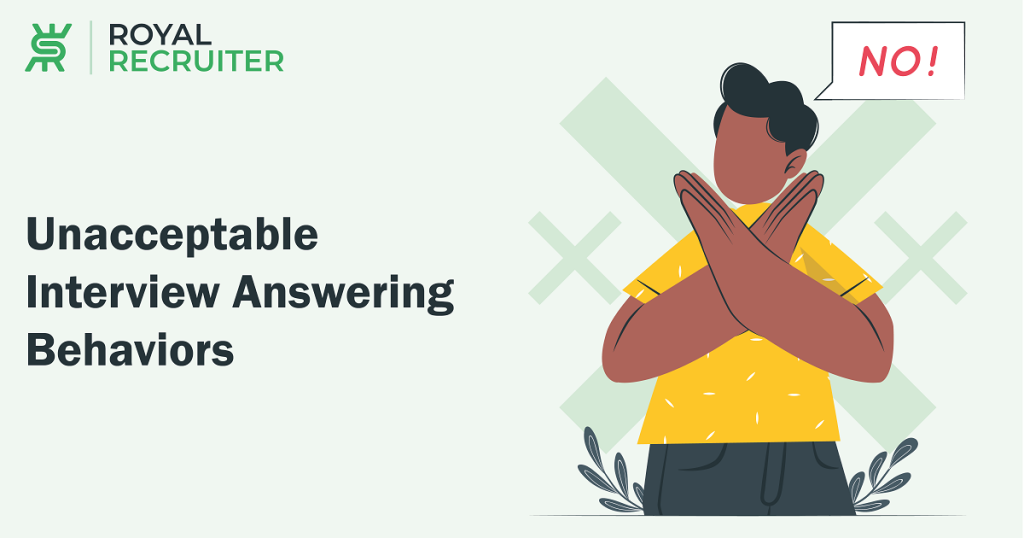
Things You Shouldn’t Do While Answering Interview Questions
Above, we’ve given some tips that will help you give your best during the interview; at the same time, there are also some things you shouldn’t be doing while being in the interview.
Let’s check out what you should refrain from while answering interview questions.
Ask interviewers personal questions
During the interview, asking questions related to the position you’ve applied for is absolutely okay, and it’s always advised to remain professional while asking questions— but don’t get too further by asking interviewers personal questions. Avoid asking personal questions that are not relevant to the job or could make the interviewer uncomfortable.
Don’t interrupt
Allow the interviewer to finish asking the question before answering. Interrupting can be seen as rude or disrespectful, and it can also lead to misunderstandings or miscommunications.
Don’t be arrogant
Avoid talking down to the interviewer. Instead, discuss your skills and accomplishments in connection with how they can help the company in a straightforward manner. For example, don’t say anything like, “I’m the best candidate for this job because I’m better than everyone else,
Don’t exaggerate your achievements
Highlighting your accomplishments and skills during the interview is vital, but try to be honest and realistic about your achievements. Exaggerating your achievements can make you appear as the best candidate, but it can also lead to disappointment if interviewers realize you’re lying or, after securing the job, you cannot live up to those expectations in the job.
Have poor body language
Avoid unnatural and weird body language during the interview. Strange and awkward body language includes slouching, crossing your arms, or appearing disinterested. So, what can you do? Sit straight, maintain good eye contact, and use positive body language, such as nodding and smiling, to convey that you are actively listening and engaging in the conversation.
Read Some Best Extracurricular Activities For your Resume which will benefit you in getting hired
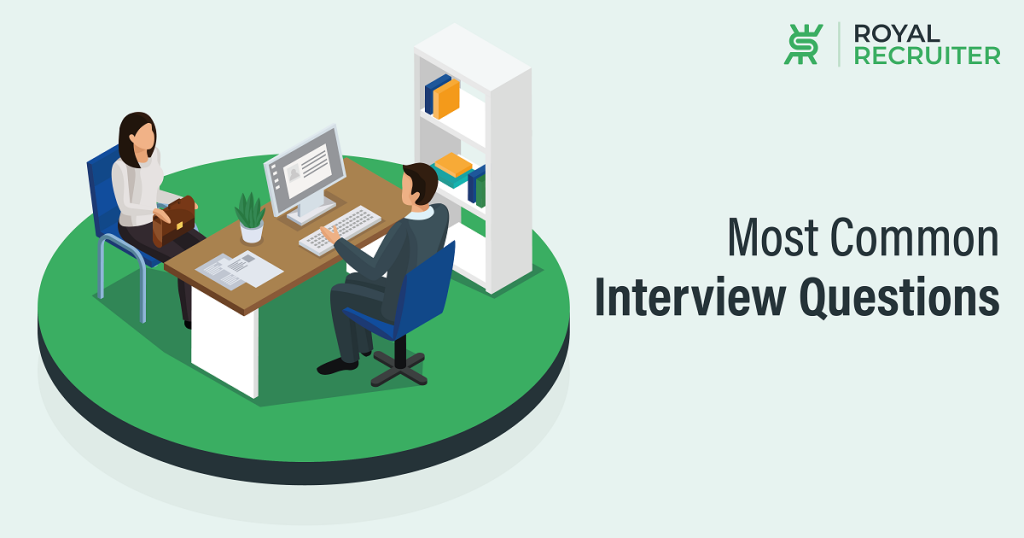
5 Most Common Interview Questions
Regardless of company and position, there are a few common interview questions that interviewers ask in every company and position. To prepare well for your next interview, here are the five most common interview questions that you might get asked.
- Tell me about yourself.
- What is your biggest weakness?
- What made you leave your current position?
- Why should we hire you?
- Why do you want to work for this company?
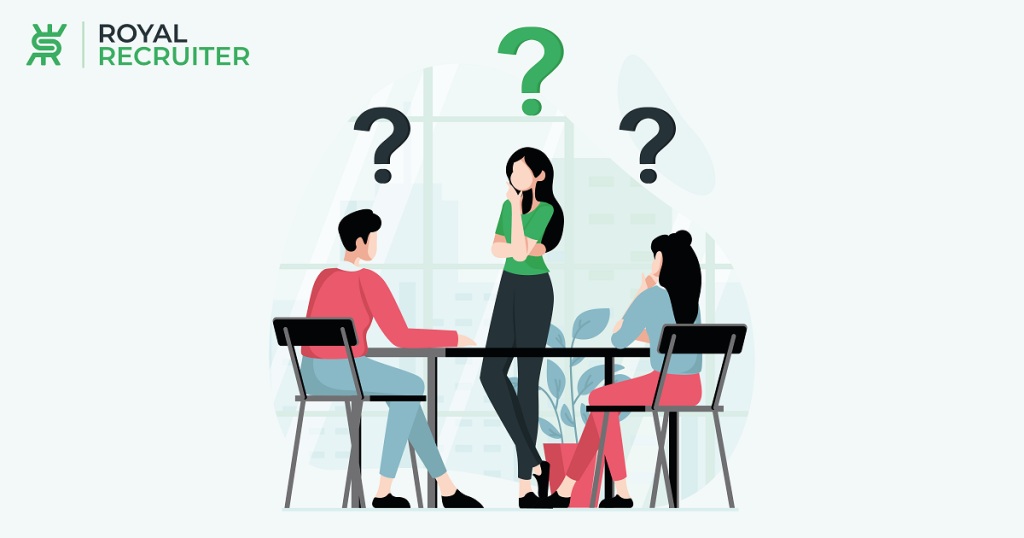
Frequently Asked Questions
Can I take a moment to compose my thoughts before answering a question?
Yes, taking a brief pause can help you gather your thoughts and avoid giving a rushed or incomplete answer. Just don’t take too long and leave the interviewer waiting.
Should I practice my body language as well as my answers?
Of course! Body language can affect how you come across in the interview. Practice good posture, maintain eye contact, and use appropriate gestures. Avoid fidgeting or slouching.


